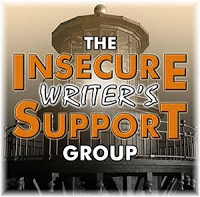Thank you so much for the Liebster Blogging Award,
Raimey. You really made my day. I am truly honored! Blogging can sometimes
feel like a lonely gig. However, Raimey Gallant’s brilliant Author Toolbox Blog
Hop helps writers of all stripes connect and support one another. Thank you for
this too, Raimey!
Readers and
nominees, here are the rules for being nominated as a Liebster:
Liebster
Award Rules and Nominees:
Rule 1: Thank the person who
nominated you for the award.
Rule 2: Answer the 11 questions the person
asked you.
Rule 3: Nominate 11 people (comment on their blog to let them know)
Rule 4: Ask the people you have nominated 11 questions (My questions are at the
bottom of this post.)
Here
are my answers to Raimey’s questions.
I must admit. Some of them were tough.
1. Who is your favourite author that you haven’t listed as a
password backup for a financial institution.
Mary Higgins Clark
2. Invent a hashtag that you would like
to see gain traction.
#ContemporaryYAAventurestory
3. The wackiest writing prompt you can think of on the fly.
A parrot led a boy into a cave to find
a treasure chest. When the boy broke the lock and opened the chest, he
discovered…
4. What genre(s) do you write in, and what subgenre(s) do you spice in?
Adventure and Mystery, Subgenre- throw in romance
5. What does your plotting/pantsing technique involve? Please describe using
morse code. Kidding. You can use letters.
I always need to know where I’m going
in story. Scene cards are very helpful with this. In other words – I only wear
pants, not write by them.
6. Using only three-word sentences, tell us about your childhood (i.e. I hated
hockey. Mom re-married dad. Toaster broke window.)
School was tough. Helped at home.
Watched little sister. I prepared dinner. Was not popular. I loved mysteries. I
wrote stories. I loved music. Acted in plays. I loved hiking. Sea shore
adventures. Work, no college.
7. Write the eulogy for one of your characters in less than 100 words.
Yikes! I don’t want to kill my
characters. [OK, so that’s one of my problems!]
He was famous for his wood carvings, at
least the family thought so. And when he tapped danced in the living room, all
the children’s card houses collapsed. He made his world laugh. He held them
with his voice. He was a protector. No one cared more for his family.
8. Tell us something quirky about you.
Each summer, I journey and explore the
United States and parts of Canada, from coast to coast, in a small conversion
van with 5 noisy kids, camping in a tiny pop-up trailer that sleeps 7 in three
beds. …And having the time of my life. I think the children are too!
9. I’m gonna need you to dig deep for this one. If chances are slim, how can
something be fat about it (fat chance)?
Wow! Good point. A literal person, I’m
going to ignore the sarcasm in this question and assume it’s psychological.
Humans are usually positive creatures. I know I try to be. It’s hard when
writing, though. We are always looking for the big—or fat—chances in life. At
least we should try, for how can we better ourselves if we never attempt
difficult endeavors?
10. If you could change one thing about a social media site, what would it be?
New comments, posts, or pop-ups
continually surfacing when I’m trying to read or comment. My husband says I
take too much time to think about what I want to say. True! But I want to say
something pithy—or at least not embarrass myself.
11. How many plots do you have in your head on any given day?
A full plot? Only 2 or 3. Possible
various threads or themes to plots? Oh…maybe about 50 or 60.
Here are 11 more wonderful bloggers who
deserve the Liebster Blogging Award and what they write about. Congratulations,
everyone!
Okay everyone; here
are my 11 questions for you to answer. Don’t get lost in details. Just have fun!
1.
You are thrown into a favorite story. [Not your
own.] Which story and who would you be?
2.
What is the hardest part of writing for you? Why?
3.
When and where do you write? How did you discover
that was best for you?
4.
If you could be anybody or anything, who or what would
you be and why?
5.
How do you push forward when the inner critic won’t
shut up?
6.
Do you need to write inside a bubble or library [like
me] or do like to listen to music or other inspiring background sounds or “white”
noise to write?
7.
How do you keep the wolves…ahem…I mean convince your
children or other people to leave you alone to write? Does it work? Provide
tips—please!
8.
Who was your favorite author as a child? Who is your
favorite author now?
9.
If you could have a superpower, what would it be?
Why that?
10.
How do you find inspiration?
11.
What book or movie or writing workshop or blog post
has affected your work the most? Why?
Once
again, thank you, Raimey, for nominating my Adventures in Writing blog for the
Liebster Blogging
Award. It is appreciated more than you realize. Thanks for stopping by,
everyone!











